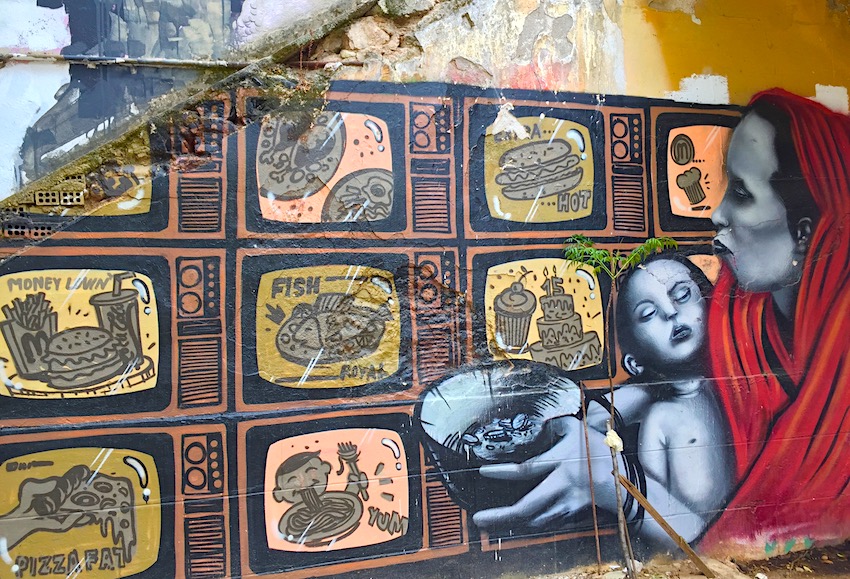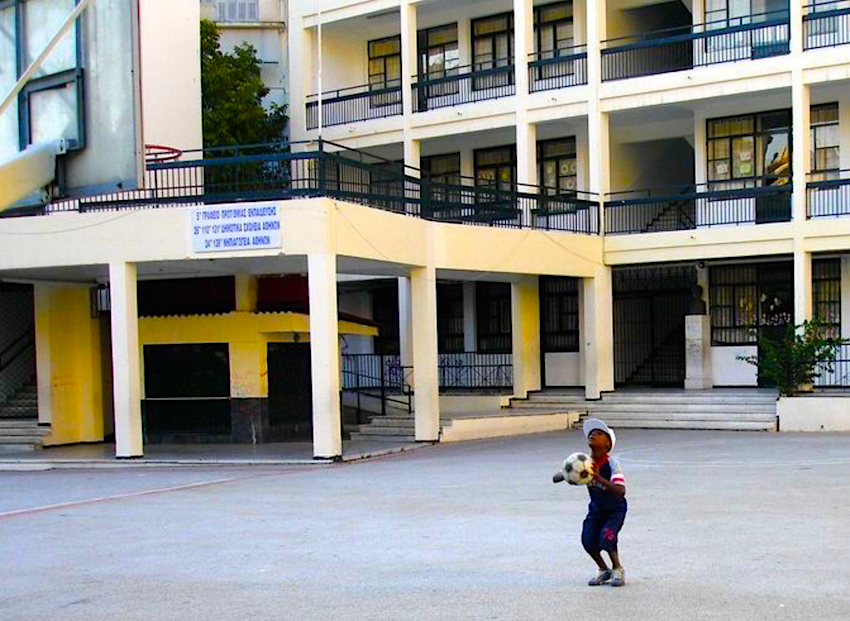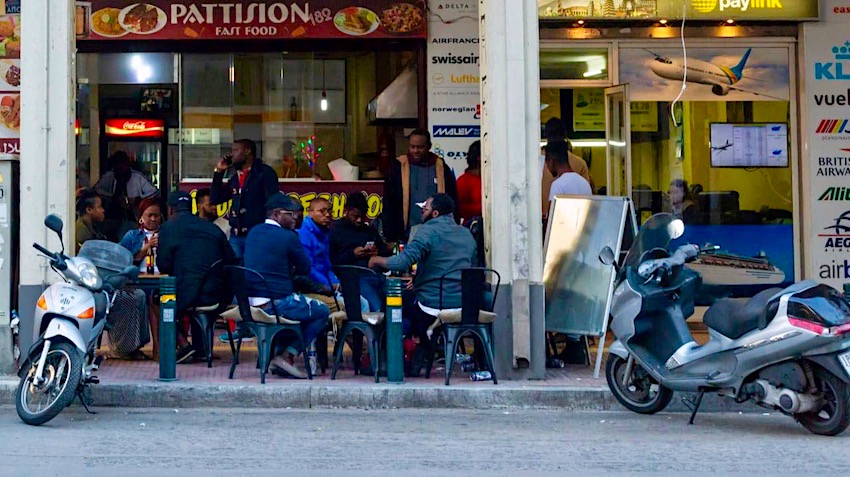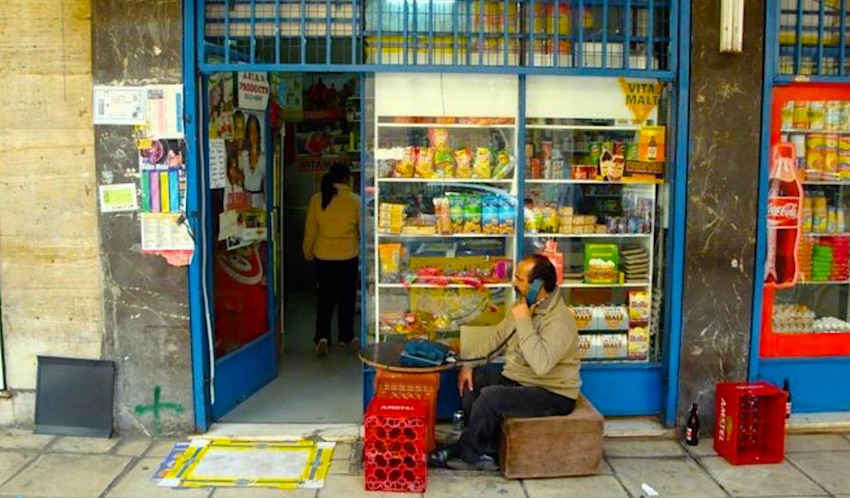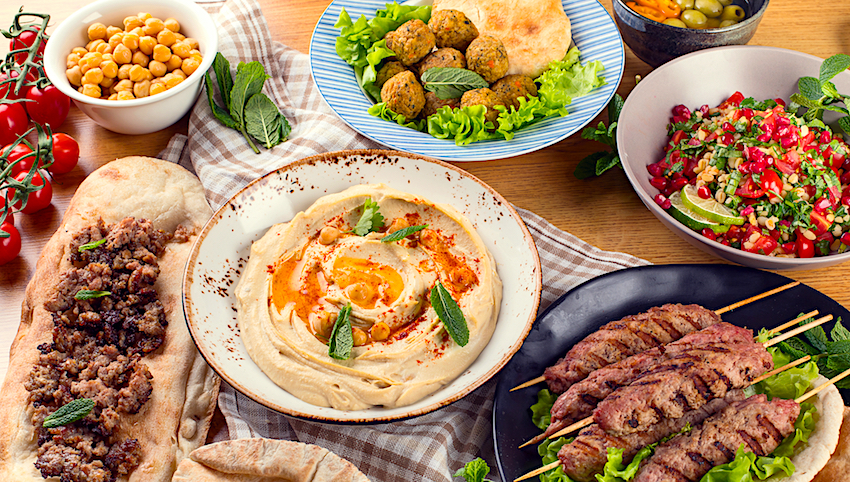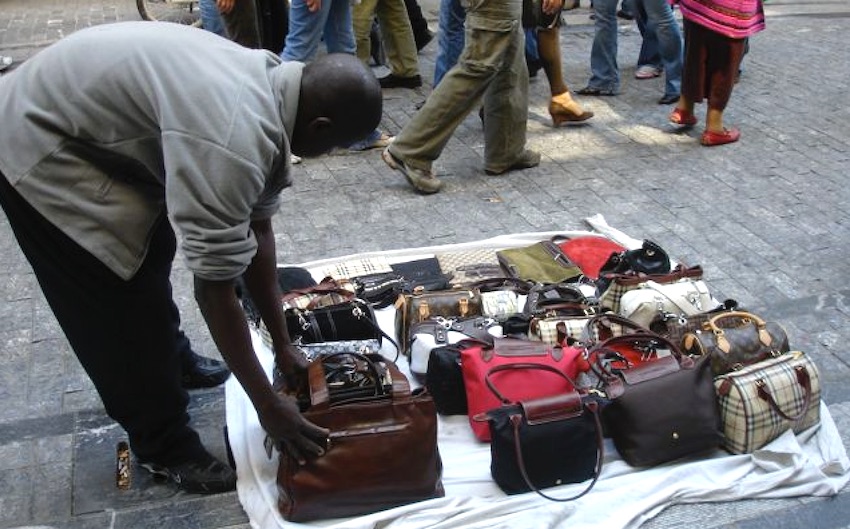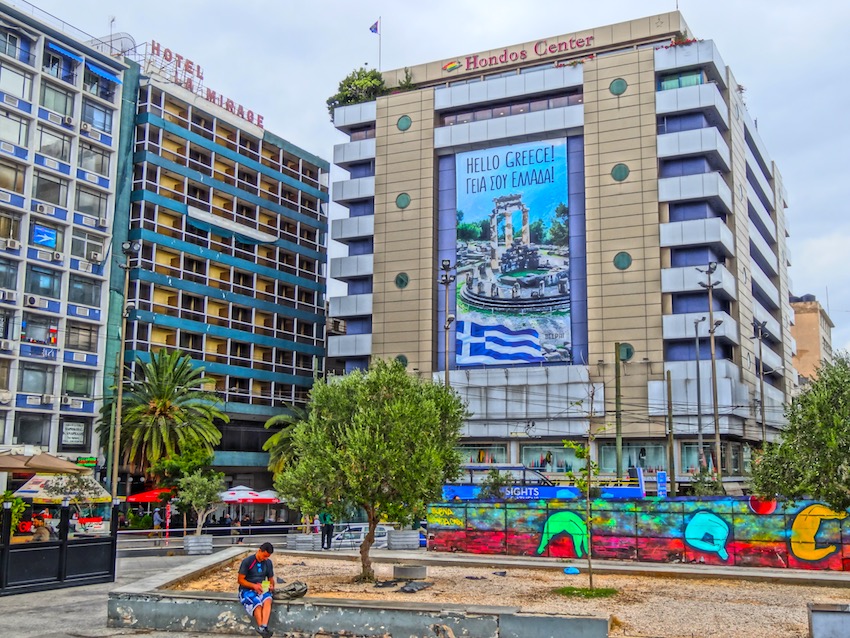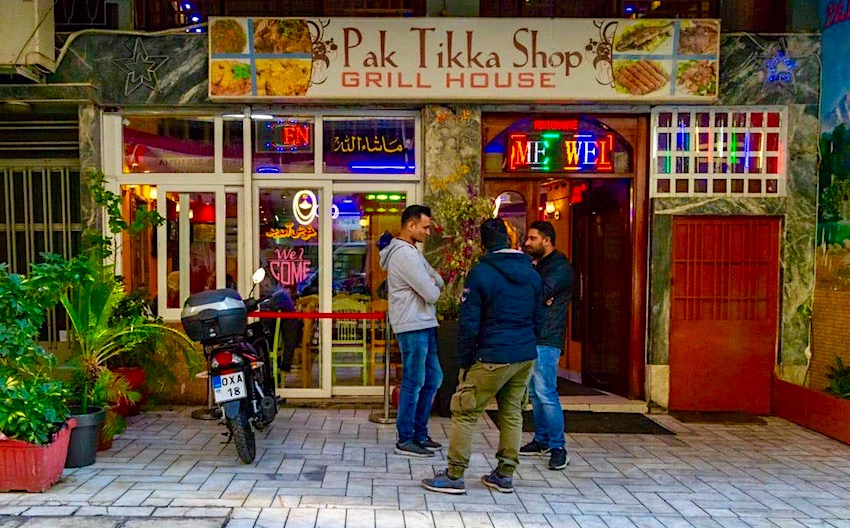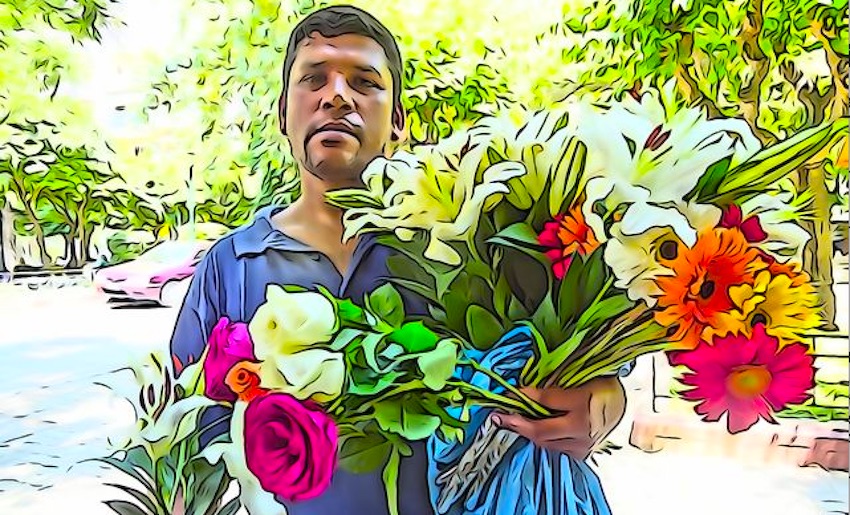
The Athens of Refugees and Immigrants
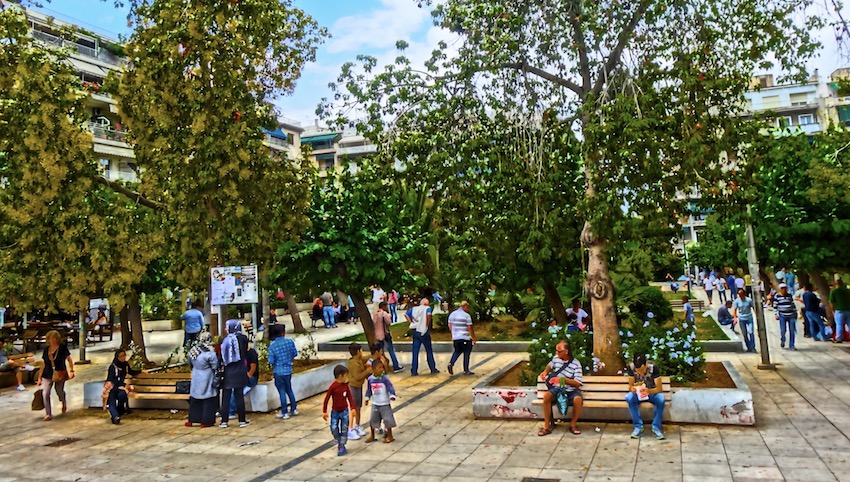
by Rando WagnerWho is deserving of the rather more flattering title expatriate instead of immigrant is one of life’s mysteries to me. But let me quickly explain my connection and why I would like to share this other, fairly new side to Athens. After a stint volunteering at the height of the refugee ‘crisis’ in the early autumn of 2015 at a border crossing between Serbia and Croatia, I was not able to just go back to my normal life and eventually via two stints on Lesvos followed by a few weeks in Idonemi, I ended up in Athens. Had it not been for torrential rain and the drive across Greece taking much longer than anticipated, I wouldn’t have missed my evening flight to London and our paths might have never crossed - the city’s and mine that is. It was love and hate at first sight. This first encounter was in March 2016. Since then I have spent 10 days each month in the Greek capital, continuing to try and help those displaced by war who either chose to make Athens their new home or are stranded here due to Europe’s border’s being more tightly shut than they ever were. |
|
|
|
The vast majority of refugees tend to live in the ‘ghetto’, a high ranking police commander’s description of the area, not mine. It spans roughly from Kato Patisia to Monastiraki and includes Patision, parts of Kipseli, Acharnon Street, Victoria, Omonia, Exarchia and parts of Metaxurgio. Many Greek friends of mine living in more affluent neighbourhoods shudder at the thought of Omonia or admit to never having been to most those areas. Having spent 90% of my time in Greece living and working in the ‘ghetto’, ‘my Athens’ might as well be a different city to theirs. Moving to London aged 14 and being based there ever since, I tend to feel slightly out of place, even a bit uncomfortable when everyone around me has the same skin colour as me. |
|
|
|
Aegean Airlines in one of their recent onboard magazines promoted Athens, ‘as a wonderfully cosmopolitan place, helped by the recent arrival of Middle Eastern, African and Asian populations’ - it was the first time I had come across this being described so publicly as one of Athens’ charms and attractions. I couldn’t agree more, the rapid change of demographic and arrival of thousands of new residents in just half a decade makes ‘my Athens’, like many things in Greece, unique and different from other capital cities where immigrant communities developed over many decades. |
|
|
|
The best way to explore the area is by walking and a good place to start Platia Amerikis on Patision. The area is now home to a large African community - Eritreans, Ethiopians, Gambians, Nigerians, Cameroonians have opened coffee shops, hair dressers, late night bars and grocery stores selling a mix of African and local foods. Curiously the favourite hang out seems to be a small restaurant called simply Patission Fast Food at 182 Patission Street, jointly owned by a young Pakistani and Afghan, serving traditional Pakistani/ Indian food, which is probably the best curry house you will find this side of Omonia. A meal plus drinks and naan costs less than €5. Don’t be intimidated by possibly being the only non-African client there, nobody objects to your presence and to me personally it feels like a good opportunity to experience how many immigrants to Europe must do when they are the only non white on a bus, in a restaurant or on an airplane. |
|
|
|
A 5-10 minute walk away is Acharnon St, it stretches for many miles from the most Western parts of Athens to the centre. The area between Kato Patisia Metro Station and Marni however could be described as Little Syria/ Egypt/ Iraq/ Yemen or Palestine. Places with names like Dubai Cafe, Sulaiman’s, Yemeni Travel, more Shisha Bars than Cairo, an Arabic pharmacy, halal food stores and Syrian shawarma joints share this part of town roughly 50:50 with long established Greek owned business, who are coexisting side by side. |
|
|
|
Two of the most notable absences are chain stores, whether Greek or International, and unoccupied stores, the plight so noticeable in many other parts of Athens. At the end of Acharnon Street at the intersection with Marni, lovers of Syrian/ Lebanese food will think they are in paradise. No less than seven establishments serve excellent shawarma sandwiches, falafel, kebabs and more substantial meals from the Levant Region. My personal favourite is the chicken liver with aubergine at ‘Falafel Abu Milad’ at 1 Platia Anexartisias Expect to pay from €2 for a chicken shawarma up to €7 for a full meal. |
|
|
|
If you now cross Marni St and head towards Omonia Square ( 5-7 minute walk), you pass through what can best be described as the place where transgender prostitution, the Hellenic Police (Omonia Police Station is one of Central Athens largest), young Arabic and Afghan families, cool street fashion wearing young male immigrants from anywhere east of Istanbul and tourists meet'. It’s not the most picturesque part of town. Neither does it host any restaurant or shops of special interest but well worth experiencing, and I stand corrected, if you like traditional Greek Souvlaki and Gyros, you will find it at ‘Lefteris o Politis’ at 20 Satovriandou Street, just before reaching Omonia Square. According to locals, it has a near cult like status and is considered one of the best of it’s kind in Athens, packed all day with mainly older Greek gentlemen. Not surprising as the restaurant has been there since 1951. |
|
|
|
Omonia Square is a crime to architecture. I was told it was a wonderful square until town planners and over zealous architects turned it into the drab, difficult to navigate place I personally see it as. Take a right down Piraeus Street, after 200m turn left into Menandrou Street and especially if it’s a hot summer day and you close your eyes, the smell of Indian/ Pakistani cooking from countless curry houses and fast food outlets will transport you to the markets of Mumbai, Karachi or Dacca, this only applies if you arrive anytime between 11am and 8pm, the area shuts down early and entirely with the last stores and eateries closing by 10pm, when the rows of shuttered store fronts take on a very eerie feel. |
 |
|
Looking down into Menandrou Street you will see cars slowly trying to make their way through the throngs of people, a mix of Pakistani men, Arabic ladies doing their grocery shopping, Roma Street vendors and the more adventurous tourists from the Northern part of Europe and the so called AngloSaxon world. Over the last 6-7 years Menandrou Street and the many small side streets connecting the area to Athinas Street, Metaxurgio and Monastiraki have turned into a hub for businessmen from the Indian subcontinent, as well as from the Middle East and more recently China. Reviving an area which was up to then more or less derelict and the hub of Athens huge heroin problem. (Greece failing to implement a Methadone policy in the 1990s means the large groups of drug users sleeping/ huddled together in alley ways or in abandoned buildings are still a part of Athens today). |
|
|
|
In any of the Omonia streets you will find Pakistani mobile phone shops, Bangladeshi grocery markets, Syrian owned clothes stores, Pakistani/ Indian restaurants, Chinese electronic and fashion wholesalers with some long established Greek businesses nestled comfortably amongst them, especially on Evripidiou Street, which leads to Athinas Street and one of my favourite coffee shops in the city, right next to the Municipal Fish and meat market you will find Psoma Mokka at 44 Athinas Street, where they make Greek coffee the traditional way, by heating it up immersed in piping hot sand. If you worked up an appetite after all the walking and fancy another curry, stop by at Pak Tikka Restaurant. at Sapfous 4. Ginger chicken, vegetable Khorma and Biryani are my personal favourites ( full meal with salad, bread & drink around €7-8). |
|
|
|
Like the rest of Greece, immigrants and refugees are being adversely affected by the longest and harshest economic downturn to ever hit an industrialised nation, resulting in considerable hardship and destitution, but there are also many examples of success and of determination to make it work amongst the newly arrived, I hope my account will animate many of you to visit these parts of town, overlooked by foreign visitors and many Greeks alike and support people who can really use some help. By the way... If you would like to support a Syrian refugee who only a few weeks ago opened his own cafe/restaurant, offering a mix of Middle Eastern/ Greek/Spanish food as well as some Anglophone staples like breakfast omelettes. You will find Jamal’s ‘ Al-Amore’ Cafe just next to the infamous Politechnico University on the corner of 28 October and Stournari. Rando Wagner is the founder of ONE HUMAN RACE an organization that raises money to help refugees of war stranded in Athens and other parts of Greece. He is a dual British/German citizen resident in London and hold sa full time job as a long haul flight attendant for a major airline, which allows him to spent 10 days every month in Athens helping refugees of war. For more about his work see ONE HUMAN RACE |
|
See also these Matt Barrett Articles about Refugees and Immigrants |
Help Support Matt's Greece Guides
Do you enjoy using my site? Have you found it entertaining as well as useful? If so please show your appreciation by booking hotels through the travel agencies and the links found on my Hotels of Greece site. The small commission I make on the bookings enable me to keep working and in most cases you won't find them any cheaper by searching elsewhere.
You can find
hotels in Greece by location, price, whether or not it has a swimming pool, and see photos and reviews by using this link to booking.com which also contributes to my website when you book. If you are appreciative of all the free information you get on my websites you can also send
a donation through Paypal or Venmo
Join Matt Barrett's Greece Travel Guides Group on Facebook for comments, photos and other fun stuff. If you enjoy this website please share it with your friends on Facebook and other social media.
